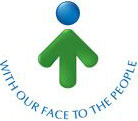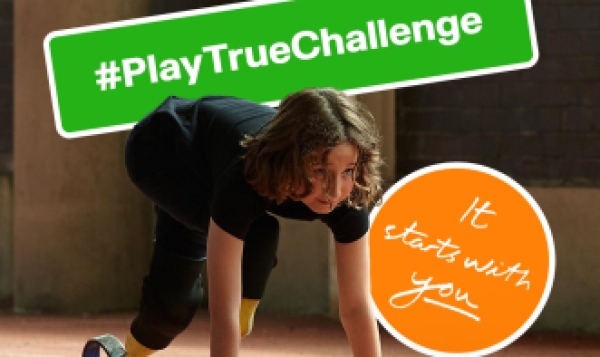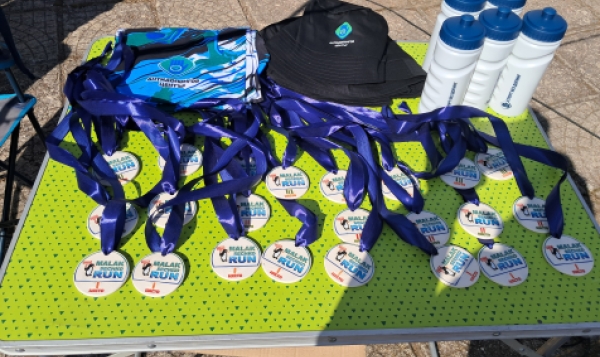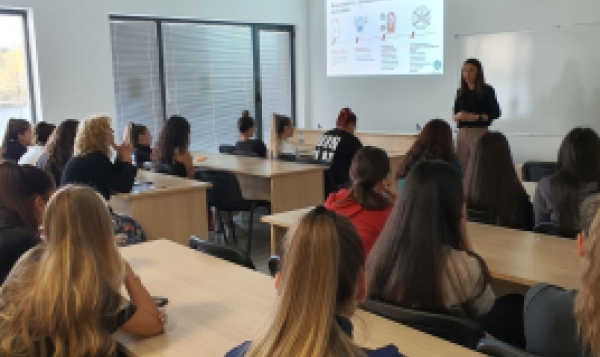WADA's statement to athletes in connection with COVID-19
Dear Athletes,
As you know, the SARS-CoV-2 (COVID-19) pandemic has continued to evolve into a health and societal emergency that has called for effective and immediate action by all of us around the world to minimize the likelihood of transmission and the impact on society. The situation clearly goes well beyond anti-doping and sport with most countries having put measures in place that include border closures, quarantine/self-isolation, cancellation of flights, social movement restrictions, etc.
The World Anti-Doping Agency (WADA) and the global anti-doping community are prioritizing public health, safety and social responsibility. The community has banded together to adjust its daily operations by reducing some doping control activities. We acknowledge that these necessary actions may impact upon athlete confidence that competitions, being carried out during or soon after we emerge from this situation, will be as clean as possible.
WADA also acknowledges how difficult this situation has been and may continue to be for you as athletes, as you deal with the measures that are in place around the world that are disrupting your training programs and creating uncertainty as to your future competitions.
The following Q&A, which WADA developed in consultation with its Athlete Committee, is meant to address some specific questions that you as athletes may have regarding anti-doping in light of this rapidly evolving situation. This is the second version of the Q&A which was first published by WADA on 23 March 2020, updated to reflect the changing testing environment and the fact that a growing number of Anti-Doping Organizations (ADOs) are resuming normal testing. As some countries are gradually deconfining, the following Q&A will continue to be updated to provide the latest information to athletes on how testing programs may evolve by integrating further health precautions to protect both clean sport and the health of athletes and sample collection personnel alike. WADA has provided extensive guidance to ADOs, to ensure that testing is carried out in a secure manner, while respecting regional public health guidelines. We refer you to the Agency’s ADO Guidance of 20 March 2020 and our updated ADO Guidance for Resuming Testing of 6 May 2020.
If you wish to know more about what specific measures your International Sport Federation (IF) or National Anti-Doping Organization (NADO) are taking in the face of this unprecedented challenge, please contact them directly, as applicable.
As the situation evolves, please rest assured that WADA and the anti-doping community will continue to meet the challenges with your health, and that of all involved in clean sport, front-ofmind.
Best regards and stay healthy,
World Anti-Doping Agency
Q&A
1. Can I be tested during the COVID-19 pandemic given the restrictions in place, especially as it relates to social distancing and self-isolation?
Athletes remain subject to testing at anytime and anywhere. Where no mobility or physical contact restrictions have been put in place by local authorities, or as confinement measures are lifted, testing may occur anytime and anywhere.
2. If I am tested, what will be done to minimize the chances of infection?
ADOs must put enhanced measures in place, consistent with the recommendations from health care authorities, to protect your health and that of sample collection personnel. More information can be found in WADA’s ADO Guidance of 20 March 2020. In those countries and regions where confinement measures begin to be lifted, athletes may expect testing to increase in concert with these measures. In such instances, WADA has issued further guidance to ADOs in order to protect the health of athletes, sample collection personnel and public health more generally. This guidance includes further recommended measures such as the use of Personal Protective Equipment (PPE) and assessing athlete and situational health prior to the commencement of testing. More information can be found in WADA’s ADO Guidance for Resuming Testing of 6 May 2020.
3. What specific measures will ADOs take to minimize the chances of transmission?
Firstly, ADOs have been advised that when they return to normal testing activities, sample collection personnel must wash their hands regularly, and sanitize their hands or put on new gloves upon arriving at the testing location. Athletes and sample collection personnel must also, as much as possible, maintain the recommended physical distancing requirements as prescribed by local health authorities (1-2 metres). In accordance with WADA’s most recent updated guidance to ADOs, when testing does increase, ADOs are encouraged to communicate to athletes what specific enhanced precautionary measures they will be taking, as well as collecting information from athletes concerning their health prior to initiating testing.
4. Can I expect any change in the testing procedures?
While the existing International Standards already emphasize both the integrity of the process and the safety of all concerned, you may see enhancements that seek to strike the balance between the protection of clean competition and personal health. Specifically, recent guidance issued by WADA to ADOs recommends that ADOs deploy a ‘prenotification’ process that may include a self-declaration concerning your health status and/or risks vis-à-vis COVID-19, as well as information on what additional health and safety precautions have been and will be taken by sample collection personnel. WADA is also evaluating what has worked well and what has proved challenging for antidoping in these unprecedented times. To that end, WADA is establishing a ‘strategic testing’ working group in order to learn from this experience and see how the anti-doping system may be strengthened further by this experience.
5. What should I do if I have symptoms of COVID-19?
You should prioritize your health and the health of those around you. If you are concerned that you may have acquired the virus, the priority is to self-isolate and follow other precautions (hand washing, wearing a mask, etc.) as recommended by international health organizations. You should contact your local health authorities to ensure that you are following proper procedures in your region, including when and where to seek testing and medical treatment. In an anti-doping context, you should advise your ADO of your situation with your whereabouts submission or when sample collection personnel notify you for testing so that they can adjust their plans accordingly.
6. Do I still need a Therapeutic Use Exemption (TUE) if I have a medical condition requiring a prohibited substance or method?
As long as you remain subject to testing, you remain responsible for ensuring you have a valid TUE. If you have difficulty accessing a physician during the COVID-19 pandemic in order to access the necessary documentation to support your TUE application, you should document all actions and impediments to comply with the relevant requirements, and this will be considered on a case-by-case basis. There are provisions in the International Standard for TUEs where an athlete may seek a retroactive TUE in urgent or exceptional situations.
7. Do I still need to provide my whereabouts information?
Again, as long as you remain subject to testing, you must continue to provide whereabouts information. If you wish to share information about your health, self-isolation, mobility restrictions etc., which may impact doping controls, please include this information in your whereabouts submission.
8. Can I refuse to be tested if I am self-isolating, in quarantine, or do not feel that adequate precautions are being taken by sample collection personnel?
In countries where confinement measures are still in place, ADOs are being encouraged to test in only the most appropriate situations, and therefore such a scenario is unlikely as ADOs must exercise sound judgement in these unprecedented times. Unless there is a mandatory isolation/lockdown, however, you are advised to comply with testing while following the preventative measures put in place by your ADO, which should be commensurate with the risks at hand. If you refuse to be tested or if you do not complete the sample collection process after notification, or if you are not able (or willing) to provide a sample due to a lack of protective measures, your refusal will follow the normal results management process, which may result in a period of ineligibility of up to four years. If you rely on the assistance of a representative to assist with the doping control process (especially for minors or athletes with a disability), and a representative is unavailable due to the impact of COVID-19, this too should be taken into account in the results management process.
9. How can I have confidence in the future that I will be competing in a doping-free environment?
WADA is monitoring closely where levels of testing have been reduced altogether and is in close communication with ADOs to work together to find the best ways to be effective during this period. When the sporting landscape returns to a certain normality, these ‘gaps’ in testing will be addressed cooperatively through additional targeted testing especially given that intelligence-gathering and investigations continue. Placing public health above the needs of the anti-doping system means that there may be impacts on the fight against doping in sport. However, there is significantly less training being carried out and significantly fewer competitions taking place. It is also important for athletes to remember that doping control samples continue to be stored for future analysis and that with the Athlete Biological Passport, some samples collected post-COVID-19 may reveal indications of doping that occurred during the period. Finally, you can contribute to anti-doping efforts by ensuring you are up to date on the latest information and education and encourage your peers and team-mates to do the same. You can familiarize yourself with WADA’s anti-doping education resources by visiting WADA’s education e-Learning platform, AdEL.











